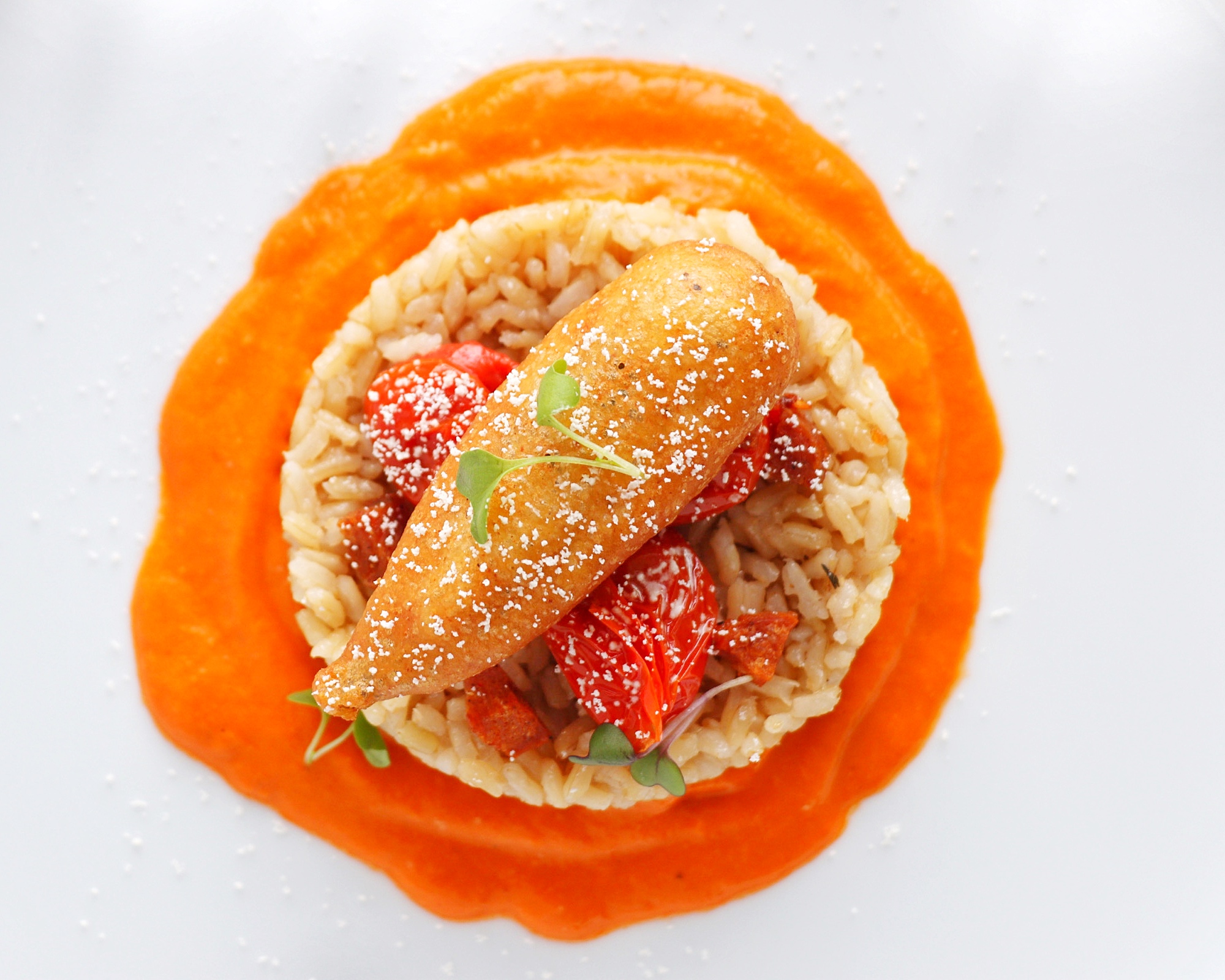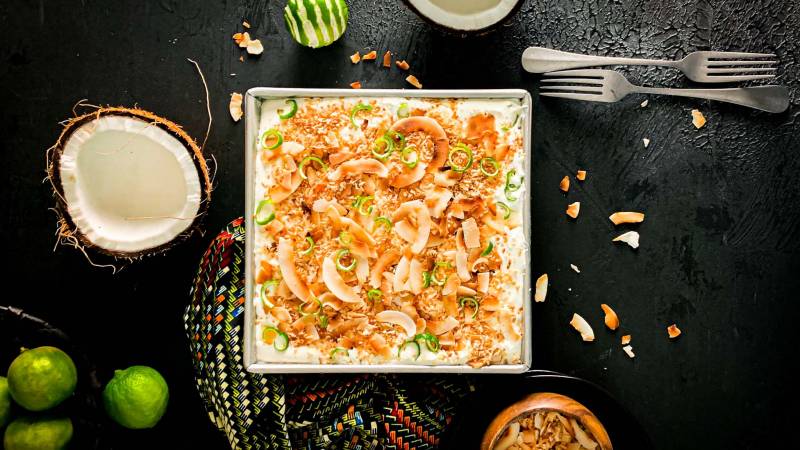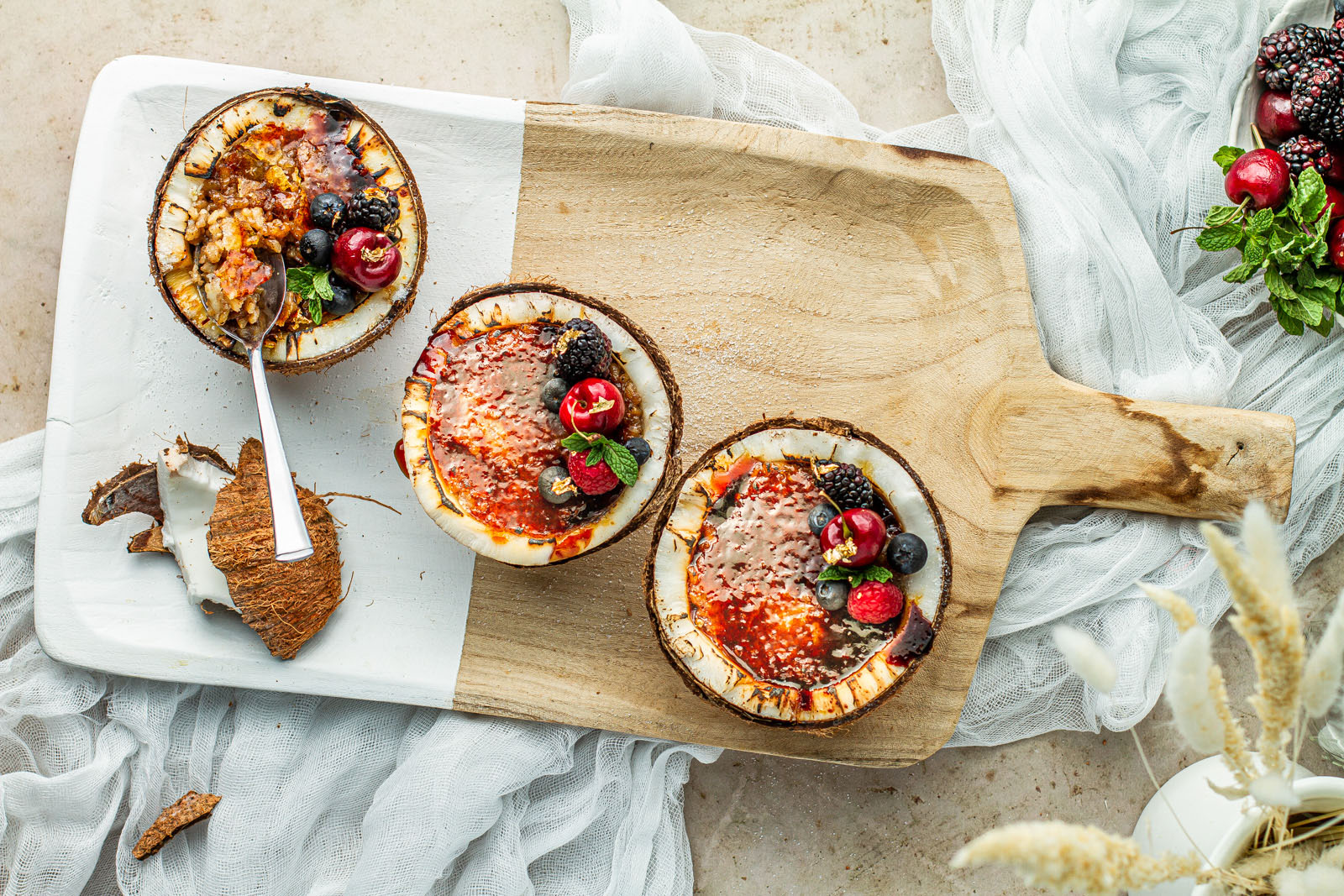A crash course on Afrofuturism might include Black Panther’s portrayal of a utopian, techno-centric Wakanda, the science fiction novels of Octavia Butler and a Missy Elliott music video—all visions of a liberated future seen through a Black lens.
But what will Black people be eating in this thriving, revolutionary future?
That’s the question that Eat the Culture, a collective of Black food bloggers, explores this month through a series of Afrofuturism-themed social media posts and online gatherings, including a Feb. 24 collaboration with the magazine Cuisine Noir. Framed as a “Virtual Potluck,” the series celebrates Black History Month by remixing traditional dishes of the African diaspora to create new recipes that are artful and, at times, deeply political: A plate of stewed crab and grits fuses together African and Puerto Rican traditions. A coconut rice pudding doubles as a commentary on gentrification.
“It’s this intersection of technology, culture, innovation and politics,” co-organizer Stefani Renée, of the Bay Area–based blog Savor and Sage, says of Afrofuturism. “How do we explore that through food?”
The event stems from a similar virtual potluck that a handful of prominent Black food bloggers—including Aaron Hutcherson (of the blog The Hungry Hutch) and Meiko Temple (of Mieko and the Dish)—put together each year for Black History Month starting in 2017. Renée, a relative newcomer to food blogging, joined in the past two years and started talking to other participants about expanding the group’s efforts beyond just one or two virtual events each year. In particular, the group wanted to create a support system for Black food bloggers, given the unique set of challenges that they face.

“Folks don’t know that we’re here,” Renée says. “When we start looking at who gets the most exposure, it’s usually white female food bloggers—and they’re getting attention for foods that aren’t necessarily authentic or native to them.”



